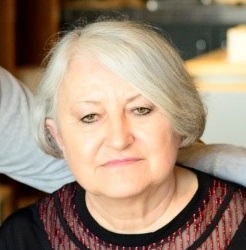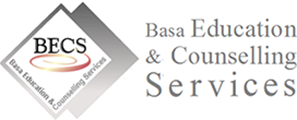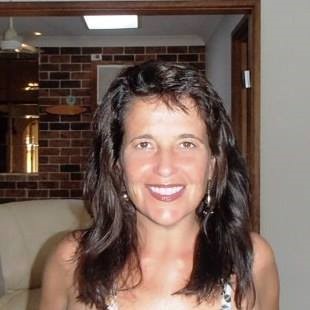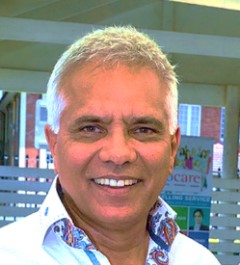Non-AQF Supervision Training Course
This Non-AQF Supervision Training Course is delivered by request only. The request can be made by individuals or organizations. Minimum number of participants 10. For further information, Please contact BECS.
(86 hrs Over a Period of 6-months)
The Supervision training program has been adopted from the AQF accredited supervision course, the (69828) Certificate IV in Counselling Supervision, designed and developed by Veronika Basa from Basa Education and Counselling Services (BECS).
For the purposes of this training, the term 'Supervision' is utilised to describe the foundation skills relevant to supervisory relationships that can be adopted and provided by a range of professionals of different training and accreditation background such as hypnotherapists, counsellors, psychotherapists, mental health nurses, psychiatrists, psychologists, social workers, or anyone else in the helping profession.
WHO SHOULD ATTEND
- Experienced therapists interested in learning about supervision and want to supervise other therapists
- Practicing supervisors who have no formal training in supervision and wish to be formally recognised.
- Therapist who wish to use this program as a professional development activity.
ESSENTIAL ENTRY REQUIREMENTS
ISOCCS recommends a minimum of 5 years of post-qualification experience and having
undertaken regular supervision and ongoing professional development each year
as required by relevant Professional Associations. If your circumstances are different,
please contact ISOCCS.
DELIVERY
PART 1 - Preparation to Workshop (20hrs)
Students are expected to read the resource materials in preparation to the workshop.
PART 2 - Workshop (42hrs)
1. Theoretical component (24hrs):
- The importance, scope and definitions of supervision
- Models of supervision
- Supervision Interventions (live, individual and group)
- Supervision relationship
- Culture in supervision
- Ethical and legal considerations
- Stages of Supervision
- Managing Supervision (induction, delivery, closure)
- Evaluation
- Supervision Tools/Instruments (contracts, group rules, agreements, etc.)
2. Experiential Learning component (18hrs):
- Oral presentations,
- Class discussions (ethics, scenarios (provided by facilitator and participant)
- Demonstrations /Role plays of supervision skills (induction, live, individual and group (4-6))
- Practice dyads (induction, live, individual)
- Live supervision of supervision
PART 3 - Practicum (12hrs)
(Live Supervision of Supervision 4X3hrs)
Practicum is mandatory in order to satisfy accreditation requirements. If the
student cannot attend the practicum Skype supervision of supervision can be negotiated.
PART 4 - Assessment (12hrs)
1. Formative - Ongoing assessment during the Training Program with ongoing constructive feedback:
- Oral presentations,
- Contribution to class discussions, case studies and scenarios,
- Demonstrations (live supervision of supervision) with real life scenarios in induction, live, individual and group supervision.
2. Summative (Final Assessment)
The final assessment (written and/or practical) evaluates students' learning at
the end of the learning program and are mandatory as they are benchmarked against
the requirements of relevant associations.
This will require all students to undertake:
Written assignments (Scenarios, Projects) Practical assignments (One live face
to face 60 minute assessed supervision session, no role plays).
TRAINING OUTCOME
By the end of the training, participants will be able to:
- Use relevant supervision contracts and agreements
- Implement supervision theories and models
- Facilitate live, individual, and group supervision
- Build a safe supervision relationship
- Solve supervisory issues
- Practice cultural competence
- Make and implement ethical and legal decisions
- Manage each stage of Supervision
- Give accurate and constructive feedback and support
- Implement evaluation processes (formative and summative)
- Use authority appropriately
- Practice self and supervisee self-reflection
- Be aware of own and supervisee limitations
- Be aware of own and supervisee needs for professional development and plan accordingly.
RECOGNITION
This program satisfies the requirements of a supervision training program of and
is recognised by the following associations:
- The International Society of Counselling and Clinical Supervisors (ISOCCS),
- The Australian Community Counselling Association (ACCA),
- The Australian Hypnotherapists Association (AHA),
- The Australian Counselling Association (ACA),
- The Psychotherapy and Counselling Federation of Australia (PACFA)
TRAINERS AND ASSESSORS
The trainers and assessors are leading professionals qualified in both the latest Cert IV in TAE and supervision within the Health and Allied Health sectors.

Veronika Basa
Founder

Basa Education and Counselling Services (BECS)
www.becsonline.com.au
“Promoting and Providing Quality Services in Education & Training, Counselling & Supervision”

Facilitator
BA (Couns Psych),
Dip Counselling and Communication,
Dip Professional Counselling,
(69828) Grad Dip of C Supervision
Mobile: 0407 544 345
Email: alexpaullier@gmail.com

Facilitator
PhD (Health Science),
MHum (Psych),
FAIM,
MAITD,
MANZMHA,
MISOCCS